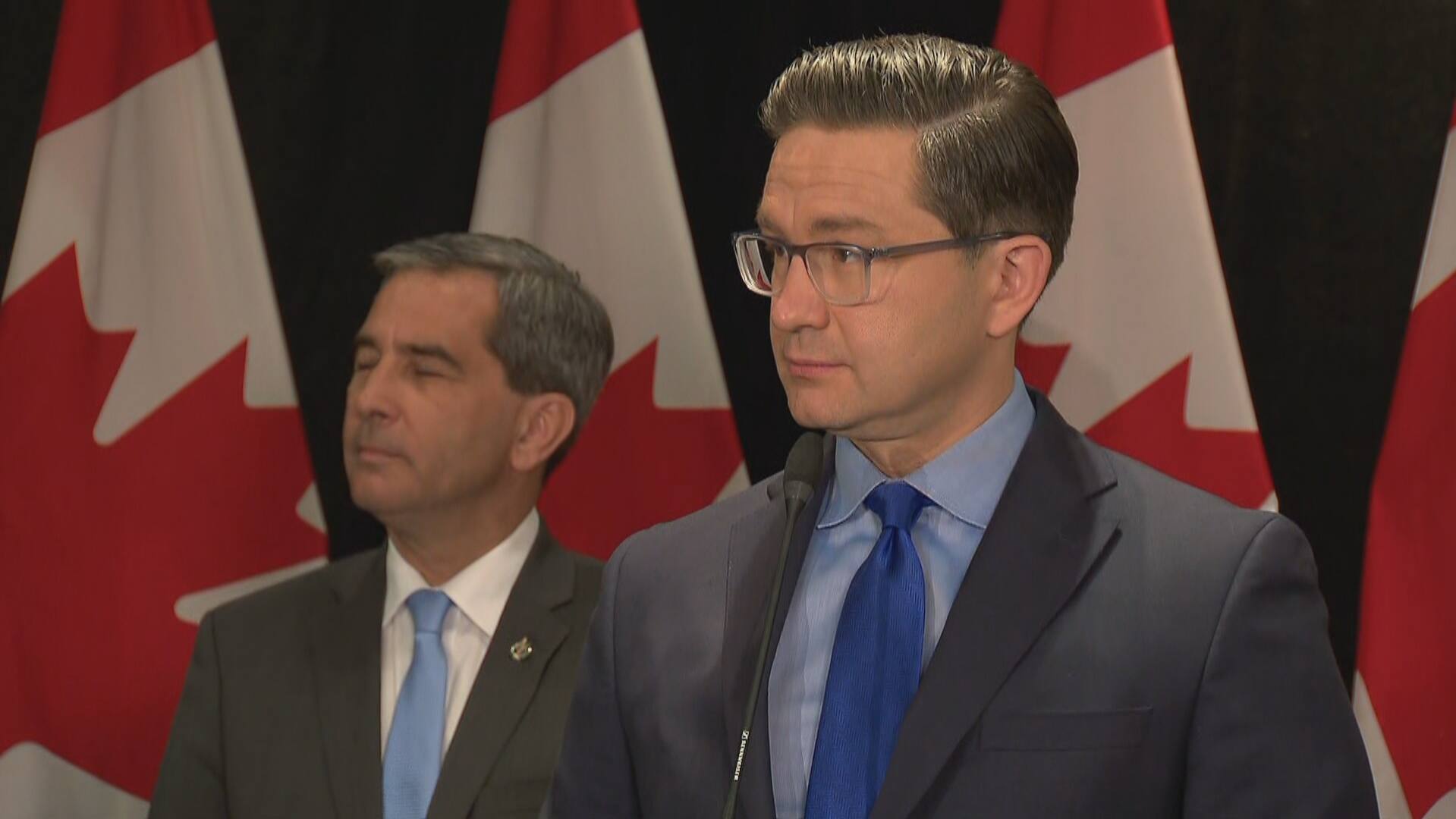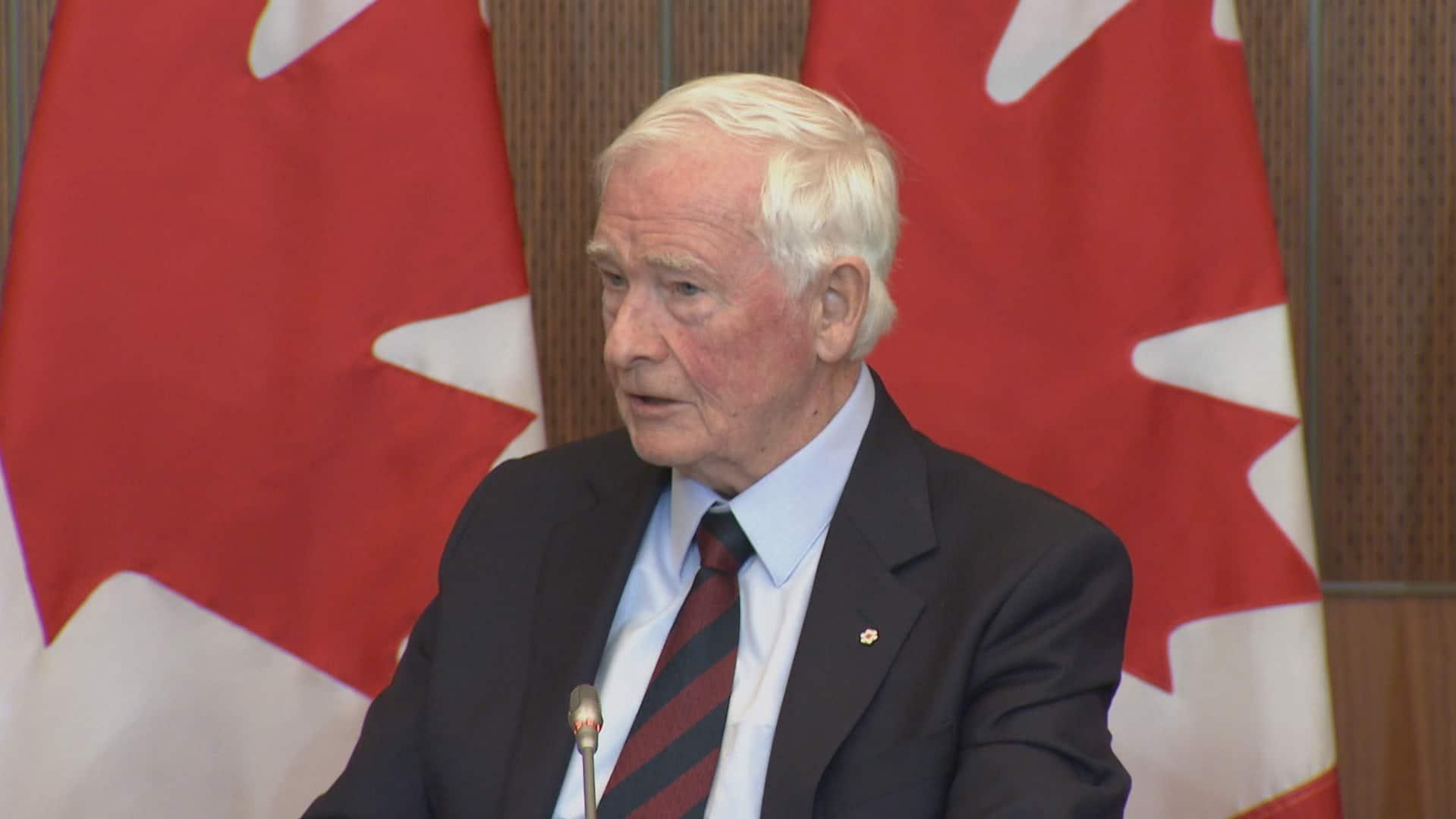‘With a conflict of interest, it is what you think it is,’ says University of Toronto’s Hugh Gunz.
Since he was first named the federal government’s special rapporteur on foreign election interference, David Johnston has been accused of being unfit for the job because of his connections to Prime Minister Justin Trudeau.
The leaders of the Conservative and Bloc Quebecois parties have both said Trudeau and Johnston are self-declared friends, that their longstanding ties are too close to allow Johnston to judge the prime minister’s actions.
But experts say determining whether someone is in a conflict of interest — and if their decisions were influenced by that conflict — isn’t entirely a matter of fact. Public perception plays a big role.
“With a conflict of interest, it is what you think it is and I think everybody has to make their own mind up on this one,” Hugh Gunz, a professor emeritus of organizational behaviour at the Rotman School of Management, told CBC News.
“In this particular instance it’s a tricky one, because the relationship between Johnston and the Trudeau family is fairly tenuous. I suspect it’s one of these things that’s right on the edge, whether there is a genuine conflict of interest.”
Johnston, the former governor general, was appointed special rapporteur by Trudeau in March after a series of news stories by Global News and the Globe and Mail alleged the Chinese government engaged in a range of interference operations in the 2019 and 2021 federal elections.
Johnston was tasked with assessing the extent and impact of that interference and the government’s response to intelligence reports, and with suggesting improvements to how government agencies combat that interference.
Johnston was also asked to decide whether a formal public inquiry should be struck — one that could subpoena witnesses, hear evidence and request and examine documents. On Tuesday, he said no such inquiry was necessary.
Johnston defends himself
After he released his report, Conservative Leader Pierre Poilievre’s first reaction was to raise the conflict of interest issue.
“We see today that his ski buddy, cottage neighbour, family friend and member of the Beijing-financed Trudeau Foundation came out and did exactly what I predicted — helped Trudeau cover up the influence by Beijing in our democracy,” Poilievre said.
That statement echoed comments made by Bloc Leader Yves-Francois Blanchet back in March. Blanchet said that while he had nothing against Johnston personally, Trudeau should have chosen a special rapporteur who is not “from the very beginning friends of him.”

Poilievre questions Johnston’s impartiality following decision not to hold public inquiry
Conservative Party Leader Pierre Poilievre tells reporters in Quebec City he ‘would not be silenced’ after David Johnston announced he would not recommend holding a public inquiry on foreign interference and called on opposition leaders to join NSICOP.
The first question from reporters at Johnston’s Tuesday press conference was not about the substance of the report but rather the conflict of interest question.
Johnston did his best to swat away the suggestion that his conclusions should be viewed with suspicion. He said he was friends with Pierre Trudeau and had skied with the Trudeau family back when Justin Trudeau and his brothers were children, but their relationship did not extend much further.
He said that when he was principal of McGill University, he saw Justin Trudeau occasionally on campus but has had little contact with the current prime minister since those days.

Reporter questions David Johnston about the appearance of a conflict of interest
David Johnston speaks with reporters about the appearance of a conflict of interest in his role as special rapporteur on foreign interference. The Conservatives have criticized Johnston’s appointment as special rapporteur, pointing to his friendship with the Trudeau family and his former position as a member of the Pierre Elliott Trudeau Foundation.
Johnston said he has stepped into public roles up to three dozen times in the past — he was called upon in 2007 by former prime minister Stephen Harper to draft the terms of reference for the Oliphant Commission — and has never had his “impartiality or integrity” questioned.
“This is the first time it has happened,” he said. “That’s very troubling for me, because this kind of baseless set of accusations diminishes trust in our public institutions.”
Johnston insisted that he was not in a conflict of interest. He said he asked retired Supreme Court of Canada justice Frank Iacobucci for his opinion and was given the all-clear.
Accusations persist
But that argument did little to dissuade his critics. Experts say that Johnston’s own words, and the words of the prime minister, indicate Johnston was most likely in a conflict of interest — even if there’s no way to determine if his report was biased as a result.
“So even if we say that David Johnston was in a conflict of interest, we’re not suggesting anything about his integrity or about his capacity to rise above those interests,” Andrew Stark, a professor of political science at the University of Toronto, told CBC News.
“We’re simply saying there was an encumbrance that existed and perhaps you shouldn’t have been the person to do this job.”
Duff Conacher, co-founder of Democracy Watch, has asked the Office of the Conflict of Interest and Ethics Commissioner to probe Trudeau’s decision to hire Johnston after the two had publicly stated their friendship in the past.
The office has had no commissioner since interim commissioner Martine Richard stepped down over a conflict if interest issue — she is the sister-in-law of Intergovernmental Affairs Minister Dominic LeBlanc.
Conacher cited a speech given by Trudeau on Sept. 28, 2017 — in which the prime minister described a retiring Johnston as “a family friend” and a “friendly neighbour” — and Johnston telling CTV News the year before that his wife Sharon and the Trudeau family “have become good friends.”
“Even if they are not friends as defined under the Conflict of Interest Act, they’re family friends and you are not allowed to improperly further any person’s private interests. And of course, it would be improper to further the interests of a family friend,” he told CBC News.
Conacher also raised questions about Iacobucci’s legal opinion, saying it should be made public.
The Conflict of Interest Act contains guidelines for determining whether a public office holder’s relationship with someone classifies as a friendship.
Those guidelines consider how often people interact, whether they exchange gifts and the perception of that relationship by others. But experts say that sticking to the letter of the law won’t settle the issue for Canadians.
‘The public is going to have to make its mind up’
“My guess is that if there are rules written down somewhere, then Johnston, I suspect, would probably squeak past them in this instance,” Gunz said.
“But the public is going to have to make its mind up about just what China has been up to. Then I think it’s a question of the public making up its mind, in this instance, in deciding whether to take Johnston’s take on it or not.”
Experts say that because Johnston was appointed governor general by Harper, a Conservative, and tasked with setting the terms for the probe into Brian Mulroney’s business dealings with German-Canadian businessman Karlheinz Schreiber, his personal allegiances are hard to establish.
“People will have to go through this and then ultimately they have to go with their hunches. But of course hunches, including mine, are always biased. There is no unbiased hunch,” said John Portelli, a professor emeritus in the department of leadership at the University of Toronto.
Stark said that because foreign interference represents a basic threat to parliamentary democracy, and because the Liberal government was accused of failing to warn Conservatives about it, greater care should have been taken when naming the special rapporteur.
“Pierre Poilievre is the kind of guy who will sink his teeth into something like this and use it whether there’s, you know, how much or how little credibility there is to it. But why would you want to allow that possibility when you could avoid it?” he said.
“Without raising any questions at all about David Johnston’s competence or integrity, It’s always better advised, if you are trying to instill public confidence, to avoid that possibility.”
ABOUT THE AUTHOR

Senior writer
Peter Zimonjic is a senior writer for CBC News. He has worked as a reporter and columnist in London, England, for the Daily Mail, Sunday Times and Daily Telegraph and in Canada for Sun Media and the Ottawa Citizen. He is the author of Into The Darkness: An Account of 7/7, published by Random House.
*****
Credit belongs to : www.cbc.ca
 Atin Ito First Filipino Community Newspaper in Ontario
Atin Ito First Filipino Community Newspaper in Ontario






